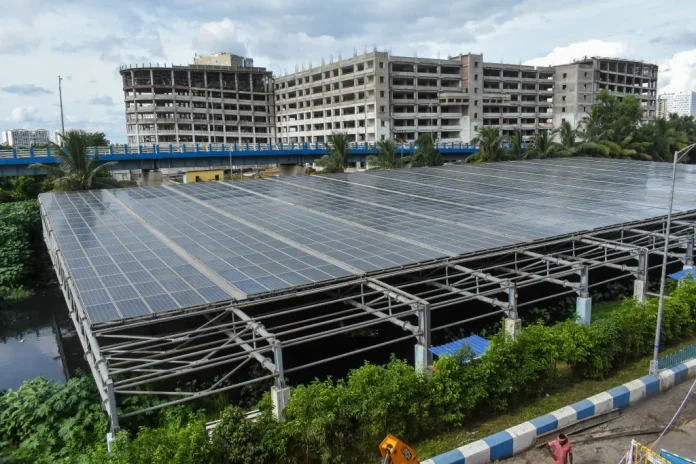NEW DELHI, Feb 7: India has achieved a historic milestone by surpassing 100 GW of installed solar power capacity, a significant step toward energy independence and sustainability. Union Minister for New and Renewable Energy, Pralhad Joshi, attributed this achievement to Prime Minister Narendra Modi’s visionary leadership, emphasizing its importance in strengthening India’s position as a global leader in renewable energy. This milestone is a crucial part of India’s goal to reach 500 GW of non-fossil fuel-based energy capacity by 2030.
In a statement from the Ministry of New and Renewable Energy, Joshi highlighted the transformative impact of solar panels, solar parks, and rooftop solar projects in reshaping the country’s energy landscape. He praised the PM Surya Ghar Muft Bijli Yojana, which has enabled many households to embrace rooftop solar energy, providing clean and sustainable power to citizens.
India’s solar sector has witnessed an extraordinary growth of 3,450% over the past decade, with the installed capacity rising from 2.82 GW in 2014 to 100 GW in 2025. Solar energy now constitutes 47% of India’s total installed renewable energy capacity. The growth has been particularly evident in 2024, when India added a record 24.5 GW of solar capacity, with states such as Rajasthan, Gujarat, Tamil Nadu, Maharashtra, and Madhya Pradesh leading in utility-scale installations.
The rooftop solar sector has also seen significant progress, with a 53% increase in new installations in 2024. Furthermore, India’s solar manufacturing capacity has grown substantially, rising from 2 GW in 2014 to 60 GW in 2024, positioning the country as a global leader in solar module production. With strong policy support, India is on track to meet its ambitious target of achieving 100 GW of solar module production capacity by 2030.

